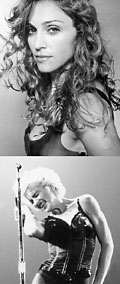Hello! On Eleventh Hour Productions’ Web site, the nonprofit literary arts organization declares its belief in three things: “that disenfranchised voices hold creative power, that society needs artistic nourishment, and that literature in our day and age includes hypertext and other multimedia forms.” Through the Poetry Factory, a multimedia studio set to debut this November, Eleventh Hour will transform these beliefs into realities.
Currently based in Columbia City, Eleventh Hour’s in the process of finding a home for the Factory in the same ‘hood. Bob Redmond, the organization’s executive director, says that although Columbia City’s gentrification and lack of office spaces have delayed the Factory’s fruition, he’s aiming for a “soft opening” by November 1 and a grand opening by 2001.
Redmond describes the project as “a post-production studio. [Writers] . . . can bring in raw video or audio and put it together in a three-dimensional literary work.
“Part [of the studio’s products] . . . depends on what people bring to the Factory,” Redmond says, but examples might include writers creating MP3s, building Web sites, or editing videos. Although Eleventh Hour has yet to hammer out admission prices or usage guidelines, Redmond asserts that the writers’ community—from slam poets to chapbook authors—will have priority.
Funding, you ask? PublishingOnline.com graciously forked over $5,000, Speakeasy will host the Factory’s Web site, Subliminal Media will provide tech support, and Westwind Computing will loan the hardware. Worry not: Corporate pockets won’t distract Eleventh Hour from their focus on the writer; the Factory will serve as a creative space rather than a performance venue. As Redmond stresses, “We are recognizing that the use of interactive and multimedia is exploding exponentially, and artists need as many spaces as possible to create stuff.” As to what that “stuff” turns out to be, we’ll just have to wait, listen, read, click, and see.
Goodbye! We’ve waited in line, rain-spattered and cold, but we weren’t complaining. We worshiped at the altar of Literary Celebrity, and if it meant a few more gusts of wind in our faces, so be it. Since its inaugural season in 1988, Seattle Arts & Lectures has given local readers the chance to say they were in the same room with a multitude of distinguished authors. Since the 1994-1995 season, however, this experience was actually enhanced by the dramatic setting. The illustrious 5th Avenue Theater, the ornate grand dame of local stages, has seen the likes of Sherman Alexie and David Foster Wallace go in for bit of bookish banter.
But Seattle Arts & Lectures, whose new season is full of readings, lectures, classes, and special events, has a new home where you don’t have to wait in the elements: Benaroya Hall.
SA&L executive director Matt Brogan expresses nothing but fondness for the 5th Avenue. “It’s a beautiful old hall, and we had a great relationship with the staff. They helped everything go really well. The idea of moving there was that the series had been selling out at [First United Methodist Church, the venue from 1988-1994], and the idea of moving it to the larger theater was so that more people could come. The seating helped us to include more people. The only reason we’re leaving is because Benaroya Hall was built. It has great acoustics, great lighting, and it’s more intimate than the 5th Avenue.”
As Benaroya Hall now becomes known for both the language of music and the music of language, Brogan is eager to expand his audience base at a venue that is already associated with so many kinds of culture and performance. “There are few cities in the country or the world where there are enough readers that you can present writers in the symphony hall,” he says. “It says a lot about us that this can happen.”
EMILY BAILLARGEON RUSSIN








